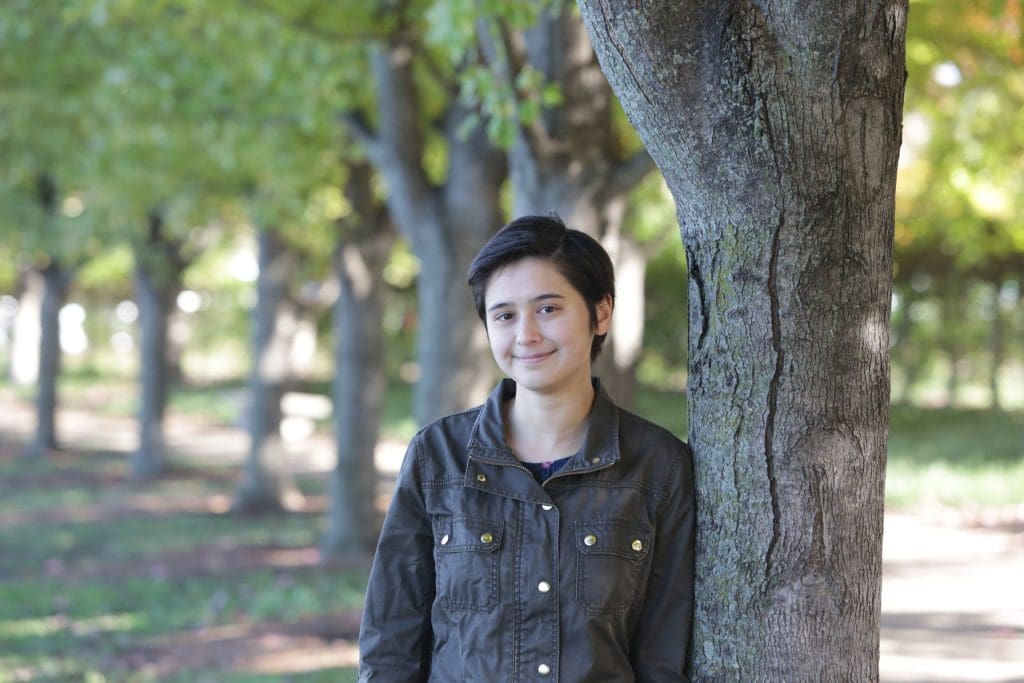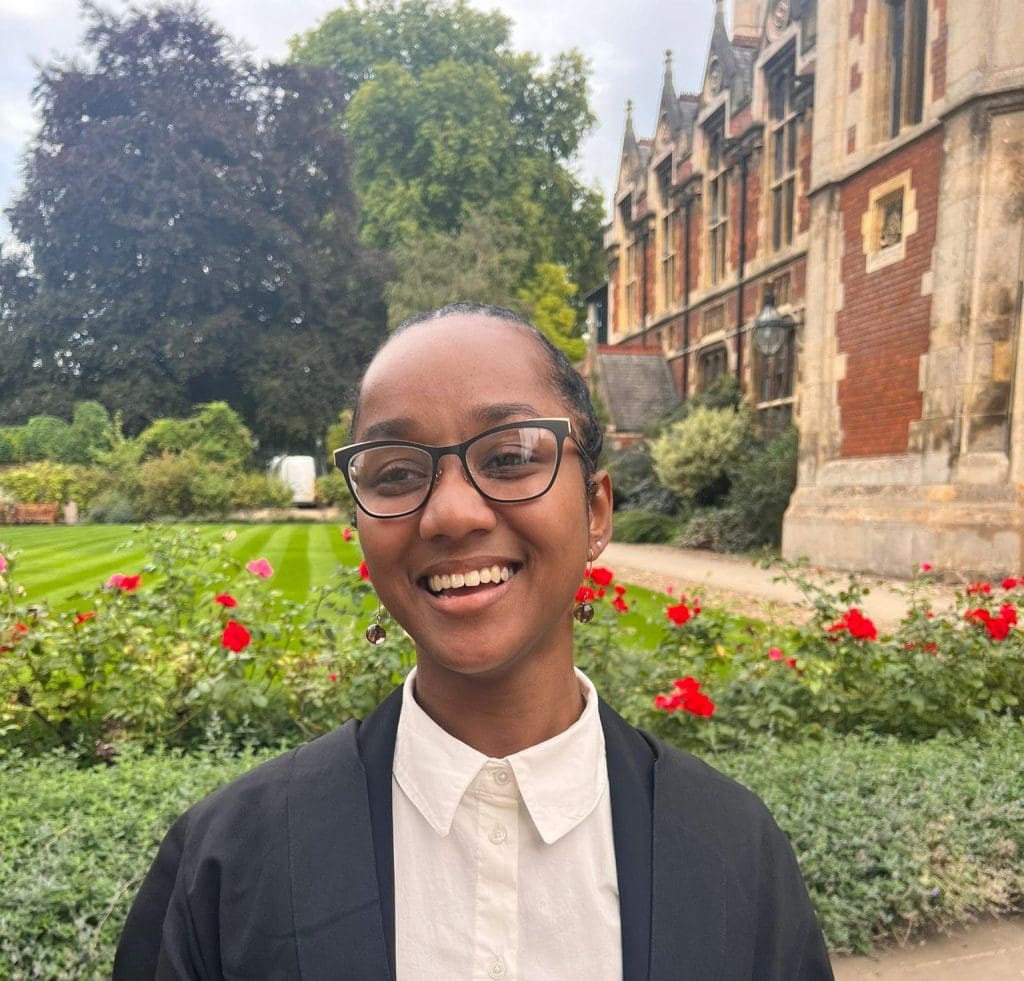Trouillot Essay Prize
The Michel-Rolph Trouilliot Essay Prize for Undergraduate Students was established in the memory of Michel-Rolph Trouilliot (1949-2012), a leading anthropologist of the Caribbean who received his PhD from Johns Hopkins University in 1985. This competition is open to all JHU undergraduates who are invited to submit original writing, an essay written for a class assignment, or an excerpt from a thesis or independent study. The winner of the competition receives a cash prize of $500 and the runner a cash prize of $250
Yara Changyit-Levin, Winner of the 2023 Trouillot Essay Prize
Yara Changyit-Levin has won the 2024 Michel-Rolph Trouillot Essay Prize for their essay entitled, “The Governance of Gender-Affirming Care for Transgender Jews.”
Yara is an undergraduate student majoring in Anthropology and Public Health Studies. The jury noted the “originality of the piece, and was tremendously impressed by their authorial voice, as well as their expertise in navigating anthropological literatures and archival materials.”
Their paper explores the political, social, and economic forces regulating access to gender-affirming surgery for Jewish transgender Americans. The World Professional Association for Transgender Health’s (WPATH) 2022 standards call for culturally competent healthcare, but they do not provide specifics of what this looks like for different communities. One example of this is the current lack of discussion on Jewish identities in queer theory. Yara investigates the ways in which Jewish transgender experiences appear in social theory, medical literature, and Jewish tradition in order to show the interplay of state biopower and cultural gender norms. In doing so, anthropologists will gain valuable historical and contemporary context for the ways transgender Jews negotiate their gender-related healthcare.
Holly Nelson, Winner of the 2023 Trouillot Essay Prize

Holly Nelson is a recent graduate of Johns Hopkins University, where she triple-majored in English, History, and Medicine, Science, and the Humanities. Her research interests include literature, performance studies, historiography, and the medical humanities. An avid dancer, choreographer, and actress herself, Holly has written several conference papers on twentieth-century theatre and dance, founded primarily on archival research she conducted as a Woodrow Wilson Research Fellow. Holly is excited to begin her Ph.D. studies in English Language and Literature at the University of Michigan this fall.
Holly Nelson, “A Dramatic Ethnography: Ethnographic Method as Structure in Zora Neale Hurston’s Spunk (1935) and De Turkey and de Law (1930)”
Abstract: This research explores the ways in which author and playwright Zora Neale Hurston uses the ethnographic techniques of “thick description” and “interviewing” to inform her playwriting and contextualize the Eatonville, Florida, community upon which she writes. Previous scholarship on ethnography in Hurston’s playwriting explores how material—Eatonville customs, celebrations, daily life—from Hurston’s ethnographic research appears in her plays. This research, unlike any existing scholarship on the topic, examines how Hurston uses the ethnographic method itself in her plays, allowing her dramatic works to be read, in essence, as ethnographies. With the aim of recovering two of Hurston’s unpublished plays, Spunk (1935) and De Turkey and de Law (1930), this study employs archival work with the Zora Neale Hurston Plays Collection at the Library of Congress. Through an examination of ethnographic technique as structure in these plays, in addition to comparative analysis between the plays and several of Hurston’s ethnographies, novels, and short stories, this study displays how Hurston’s ethnographic strategies are also apparent in her other literary works, thereby—to borrow terminology from anthropologist Didier Fassin—“blurring the boundaries of ethnography and fiction.”
The jury of graduate students for the Trouillot Essay Prize had this to say about Holly’s essay:
Holly’s essay takes an insightful step by delving into how Zora Neale Hurston employs the ethnographic method itself within her dramatic works. This perspective sheds refreshing light on Hurston’s writing and intellectual legacy, showcasing how careful readings of under-examined archival sources can inform how we approach the productive relationship between the literary and the ethnographic in addressing social injustice and power structures. Holly also demonstrates how ethnography as a method moves beyond the mere depiction of the quotidian and becomes a vehicle for social critique through which penetrating political dynamics such as racism and gender can be inscribed, figured, and thought otherwise. Holly’s writing is also well organized, weaving together arguments, sources, and analyses in a clear and concise manner. The essay, in a nutshell, exemplifies the intellectual rigor and critical spirit worthy of this year’s first prize.
Yara Changyit-Levin, Runner-up for the 2023 Trouillot Essay Prize

Yara Changyit-Levin is a rising sophomore with a double major in Anthropology and Public Health Studies. They have studied and written about Jewish history since they were fourteen years old, with particular interests in medieval Spain and Jewish queer identities. Outside of academics at Hopkins, Yara sings with JHU Kranti, paddles with the JHU Dragon Boat team, and serves on the board of Witness Theater.
The jury of graduate students for the Trouillot Essay Prize had this to say about Yara’s essay:
Yara’s essay offers an original insight into how Jewish kinship networks adapted to the violence of forced conversion to Christianity in post-Reconquista Spain. The essay skillfully builds on archival confessions, rabbinic legal opinion and a range of historical sources to show how the Reconquista produced two distinct diasporas with different approaches to kinship. The essay asks crucial questions of how history repeats itself in the contemporary moment with the violence of governmental policies on immigrant laws, minorities and religious conflict leading to the reconfiguring of kinship. The structure of the essay, clarity in writing, and coherent narrative show Yara’s skill as a budding scholar. Yara’s essay revisits a foundational inquiry in the discipline of anthropology by suggesting kinship networks are deeply shaped by, yet not reduced to, empire-building and religious conflicts.
Justine Prince, Honorable Mention, 2023 Trouillot Essay Prize

The practice of walking is viewed by many as a means to engage with the environment, as well as improve one’s mental and physical health. Yet, what invisible barriers arise within urban spaces that may discourage walking for the disabled person? With this question in mind, my Senior Thesis for the Medicine, Science, and Humanities program seeks to answer: How can the knowability of public urban space be viewed through the sidewalk, an infrastructural terrain which, for some, opens the city, and for others, restricts the places one could go?
Zamir Salman, Honorary Mention, 2023 Trouillot Essay Competition

Zamir Salman is a former exchange student at Johns Hopkins University studying a Bachelor of Science in ‘Global Health and Social Medicine’ at King’s College London. Taking courses in the Anthropology department at Hopkins, he focused his passion for literature into tackling literary analysis as an anthropological methodology and literary mediums as ethnographic fields. He advocates for art as a means of understanding the textures of the ordinary, the moral intricacies, and the antagonistic intimacies of the human experience. He is currently interested in post-colonial South Asian literature by diasporic writers so as to understand their experiences with cultural trauma, ill-being, and amnesia post-Partition.
2023 Summer Research Grant Prize Awarded to Larkin Gallup

Larkin Gallup is a rising senior from southern California studying Anthropology and International Studies with a minor in Environmental Studies. She is interested in sustainable design and development, intersectional environmentalism, and the food system. Baltimore’s history as a city shaped by industry has guided her interest in sustainable and equitable design.
Research: The project is studying the history of the South Baltimore neighborhood Hawkins Point and its eventual destruction due to decades of pollution and the encroachment of industry on its residents. It compares the moment when Hawkins Point residents were bought out to the current fight against CSX’s coal terminal in Curtis Bay, studying points in time where people and industry inhabit the same spaces, and the choices that are made to force either out. The research will be conducted from June – December 2023.
